Debating Against Giants
- Chloe Ho

- Feb 2, 2020
- 7 min read
Updated: May 2, 2020
The World Universities Debating Championship (WUDC) was held from the 27th of December 2019 to the 3rd of January 2020. A grand total of 1177 bright debaters from over 50 countries assembled in Thailand, excited and anxious to take part in one of the most prestigious debating tournaments in the world. Meanwhile, 8 of our own students from Taylor’s University Debate Club attended the competition, 4 being participants and 4 being judges. This tournament is different from your regular Malaysian or regional tournament as participants would be debating against students from different regions and countries, hence, a greater sense of agility and quick adaptation would be needed to excel.
We decided to do a short interview on some of the students who participated in the WUDC to gain a better insight on what it takes to be part of such a prestigious debate competition.

What are your thoughts on the team’s overall performance at WUDC?
I was extremely relieved and happy that I managed to qualify to debate in the open knockout rounds. My partner and I had a rather difficult time in the 9 preliminary rounds due to judging styles that we were unfamiliar with, and quite frankly discrimination from some western judges. In spite of this, we still managed to rank within the top 48 debating institutions in the world, so I was proud of us.
As for the Octofinals, it truly was a magical moment. In the round prior to the Octofinals, we had one of the toughest matchups in the tournament, where we debated against the Universe Of Sydney's A & B team, who composed of finalists of the previous edition of worlds, and some of Australia's best, as well as Belgrade A, who went on to become finalists of the tournament. Nonetheless, we were unanimously put through to the next round, and we only narrowly missed out on proceeding to the quarterfinals. This was a historic feat for Taylor's as it was the furthest we had ever made it in the World Championship, so I was grateful to be apart of this historic moment.
Advice for rising debaters:
Be kind and reasonable. Good debaters are skilled, but the best debaters are the most emphatic people I know and they are never unwilling to consider that they are wrong. Moreover, there is no way around hard work. Reading the news every day, challenging your beliefs and understanding the world on a deeper level is the best thing. Lastly, don't focus on winning. My coach once told me that you can only control the 7 minutes you are given to speak, not the judges, the topics, and the side you're placed on. As long as you put your mind to giving a speech you can be proud of, and becoming a better and more knowledgeable person each round, you've gained the best that debate has to offer.

What did you learn from the opportunity of being a judge?
It feels surreal to judge any knockout round, let alone the ones at WUDC. At WUDC, I had the opportunity to judge alongside other individuals who were from different regions which allowed me to understand and experience the various methods used. This level of exposure is infrequent because we often remain in our regions by virtue of proximity and convenience which is rather unfortunate. That being said, I really appreciate the chance to compare and contrast how I have conceptualized judging juxtaposed to someone else's.
What are some of the challenges faced while playing the role of a judge?
After every debate, a judge is given 15 minutes to deliberate then they are required to present an oral adjudication where they will announce the rankings then provide justifications as to why the outcome was as such. This process has taught me to view debates from a perspective far different from a debater. It was no longer just defending the side you're on - instead, it is having to decide and justify the metrics you used in judging the debate. Let it be when explaining why some issues in the debate are more relevant than others even if no team explicitly does this, or when there are opposing arguments that are both equally true and possible but completely dependent upon different conceptualizations of the world. Adapting to these changes may be difficult but in so far as you are reasonable and fair, this challenge can be curbed over time.
Advice for rising debate judges:
Go for it. It might seem difficult in the beginning but that's only because it's meant to be - judging may seem foreign but contrary to popular belief, your debating capability does not determine how good you are as a judge. They both have vast differences which are beneficial, because to learn from different perspectives allows you to broaden your understanding at a faster rate.
From the viewpoint of a debater, it also helps you to re-imagine debates differently and have a better sense of direction with your case because you now have a better understanding of what a judge might look for in a debate.

What are your thoughts about the competition as a whole and emerging as the 9th Best ESL Speaker?
I represented Taylor’s at the WUDC last year at Cape Town, South Africa and this year’s competition was undoubtedly far more competitive and tougher than last year’s by a mile. Every preliminary round had us on edge having constantly being drawn into rooms with teams from top institutions around the world like Yale, Harvard, Sydney. So, it was definitely exhilarating for me to see Taylor’s Debaters compete and defeat them throughout the tournament.
I fell short of making the ESL Top 10 last year at Cape Town ranking 14th best so getting 9th best this year meant finally achieving something I missed by the skin of my teeth the last time. It was also extremely humbling to be able to get this speaker award because close to half the tournament consisted of ESL teams, which meant an insanely competitive ESL speaker pool.
Tell us about your history with debating.
I became a competitive debater when I joined Taylor’s Debaters in late 2018 but I’ve been actively involved in the debating circuit since 2017. I can’t isolate a specific reason for why I joined the sport but it was mostly because I liked the fact that you become a better person as you work to become better at the sport.
Every article I read, every economic theory I learned and every time I updated myself of what’s happening around the world, I also become far more knowledgeable and understand the world and the forces that govern it a lot better. That’s something that’s unique to this sport that I’ll always enjoy.
Advice for rising debaters:
Go to a tournament. Dip your feet into debating against other people at an actual debate tournament and you’ll understand the adrenaline rushes and jolts of excitement that can only be experienced first-hand. Training within the club is exciting and has its fair share of rewards but being able to use what you’ve learnt and worked on against other teams and win rounds is a type of excitement that can get addictive and will keep you coming back for more. At least, that’s true for my case haha. The club is also full of seniors that are very willing to teach you anything and everything we know to help you get to the greatness you deserve, all you need to do is just ask. :)

What are your thoughts on the WUDC as a whole?
The competition for me was a whole new experience. I have been debating for a while but no other tournament was as challenging as the World Championship. Not only did we have to go up against debaters from all around the world, but keeping our spirits high and giving our absolute best throughout the 9 gruelling preliminary rounds proved to be challenging.
When we didn't do well in one of the rounds, we had to amend what we can and remain heartened so that we can enter the next round stronger. Those were the times when we were there for each other. We made sure to support each other so that everyone can get through it. After each day, we would talk to each other about our problems and try to help each other out. It was a wholesome experience and it is what bonded us too.
Tell us about your story with regards to debating, when and how did you start debating?
When I was 12, I had two choices of secondary schools to continue my studies. I researched these schools and found a few videos of students debating from one of the schools’ Debate Club. I was amazed and I remember telling my mom, ”I will be like them one day”.
Plus, having experienced public speaking in primary school, I wanted to try something new. Hence, I chose that school and started my debate training there. Eventually, I started debating actively at the age of 16 and it was also one of the reasons why I chose Taylor’s to do my degree.
Advice for rising debaters:
Being a debater, it's important to know that things take time. As much as we want fast progress, debating is a sport that requires a lot of time to be invested. It’s good to set reasonable goals and always be kind to yourself in the process. I think the process to get to where I am now, there were a lot of times where I felt like my progress was too slow or times when I questioned my abilities. What kept me going was because I believed in the process and it is important to not rush it and enjoy the experiences along the way.

What do you think of the WUDC as compared to other debate competitions?
I thought the competition was extremely well run and engaging. The individuals that set the topics that were debated (known as the adj core) were phenomenal and truly set motions that allowed debaters to think about interesting and challenging concepts that were relatively new in the debating scene.
When and how did you start getting involved in the debating scene?
As a child, I had a lot of opinions but was a rather introverted person. I saw debating as an avenue to express my opinions to its fullest as well as pit my argumentative capabilities against like-minded individuals.
I joined the debating club in my school at the age of 12 but only started competitively debating when I was 16.
Advice for rising debaters:
Debating is a challenging and gruelling sport that constantly forces you to face seemingly insurmountable odds. If there is any advice I could give, it would be that a budding debater attempting to grasp the sport should persevere in the face of difficult obstacles and should constantly try and improve themselves.

It is interesting to see that all the debaters have a common characteristic- they are hardworking in practising, doing research and constantly updating themselves with knowledge. The debate club is always accepting new members and students of Taylor’s University are highly encouraged to join the club! Not only would you be able to grasp a new set of skills, but you would also be able to learn first-hand from these experienced seniors.
Lastly, a hearty congratulations to all the participants and judges of the WUDC from the debate club- we wish you guys all the best in your future undertakings and may you continue to do exceedingly well in debate championships!
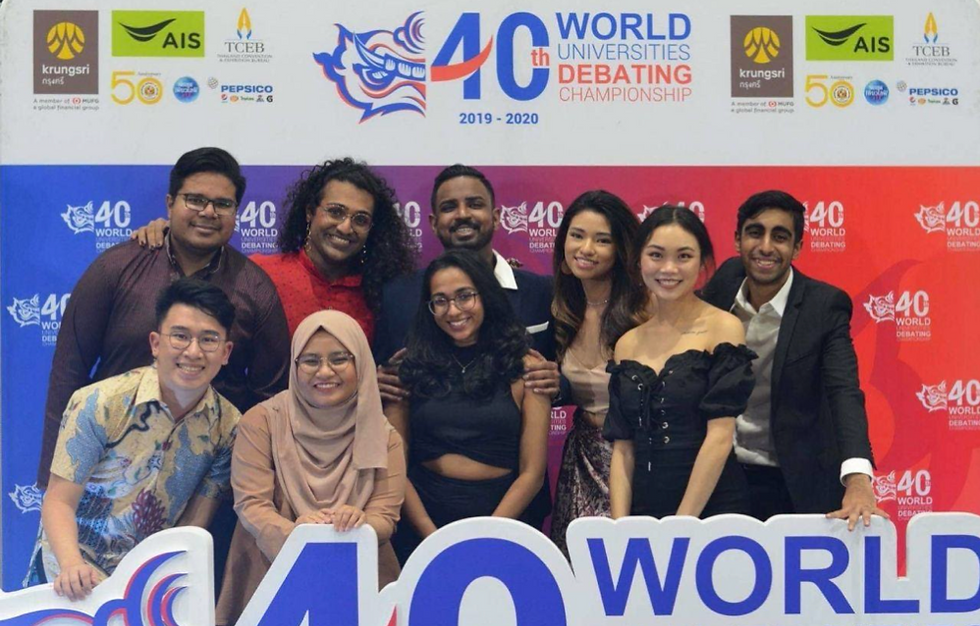
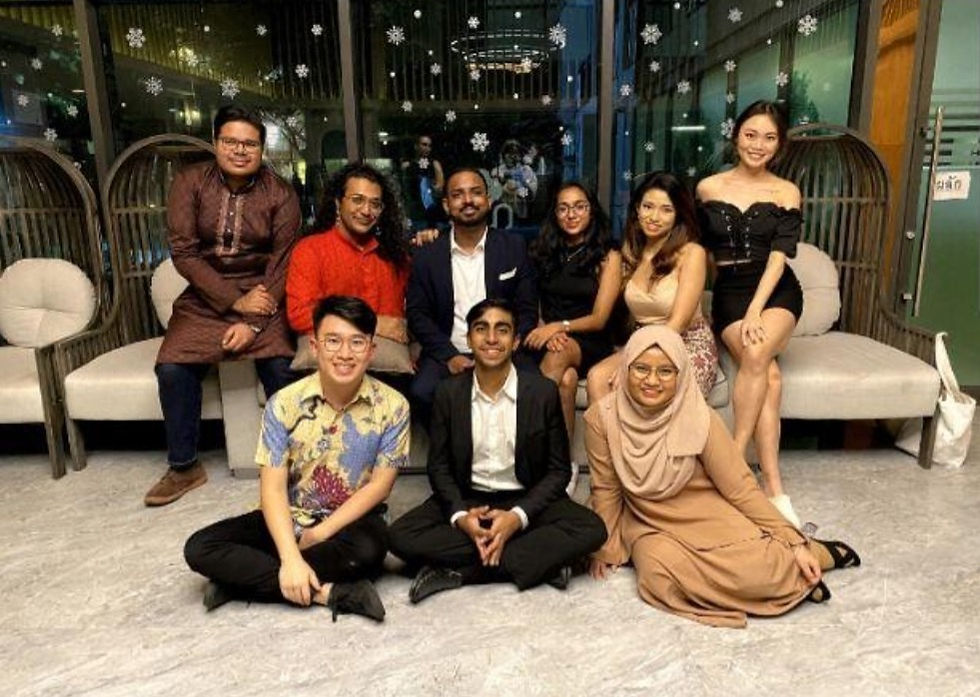
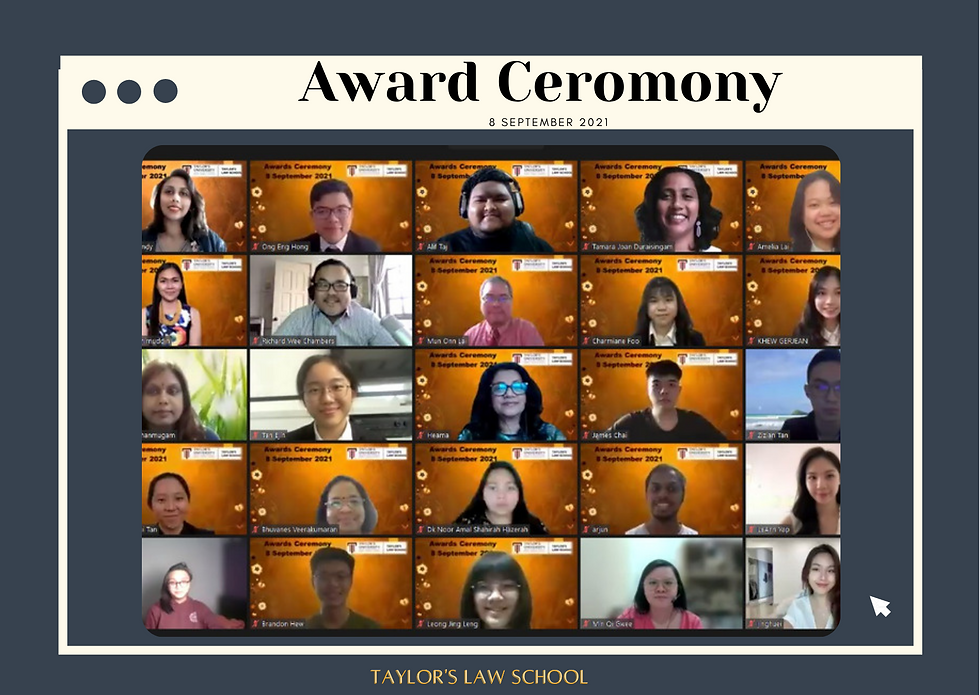
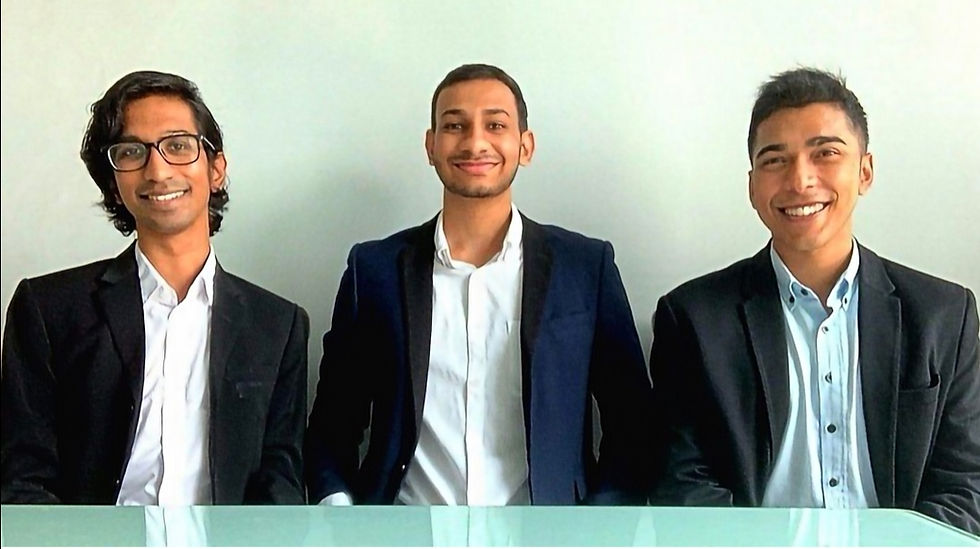
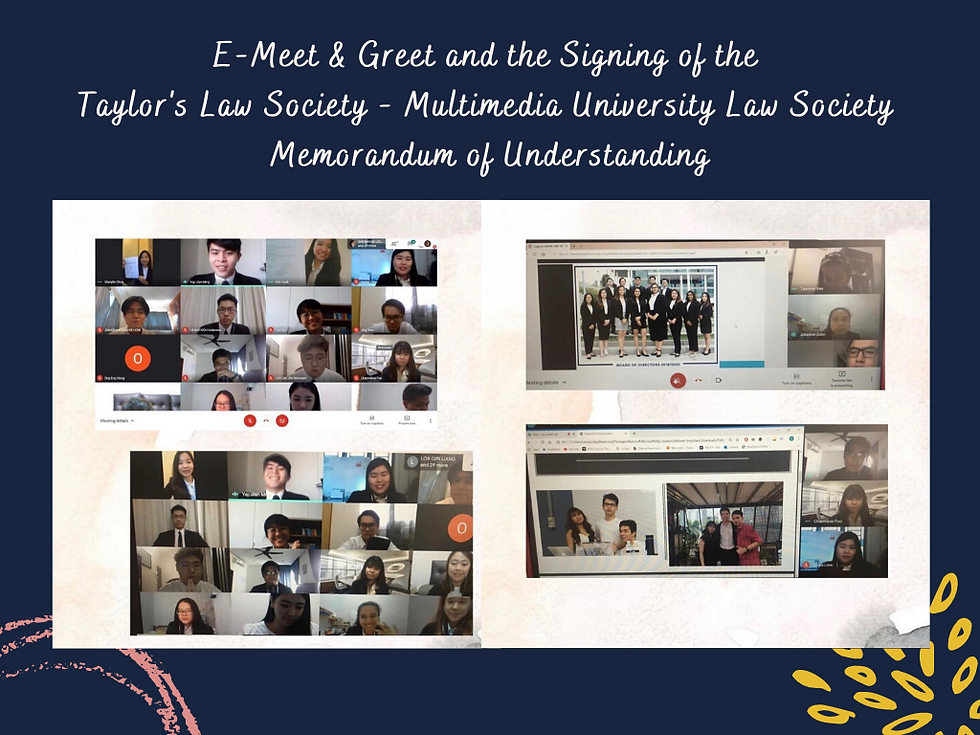
Comments